Inflammation can be a confusing topic to discuss. Your body uses inflammation when you suffer an injury or sickness—it’s your body’s miraculous way of healing itself! However, more and more people these days are suffering from chronic inflammation, which is an entirely different story.
Inflammation turns chronic when your body continues to send out inflammatory markers even when you don’t have a specific injury. Over time, this can lead to serious health conditions like arthritis, heart disease, diabetes, or even certain types of cancer.
This type of chronic inflammation is closely related to the aging process, as well. A report published in Aging and Disease says inflammation that is left untreated can ultimately accelerate the aging process and increase the risk of age-related illness.
Fighting and preventing chronic inflammation involves eating a healthy diet and avoiding a sedentary lifestyle. While we can’t prevent inflammation by just eating one type of food, there are certain nutrient-dense foods we can incorporate into our diet to help.
Continue reading to learn about some of the best vegetables you can eat to reduce inflammation and slow aging. And for more healthy eating tips, check out 5 Best Vegetables to Eat After 50.
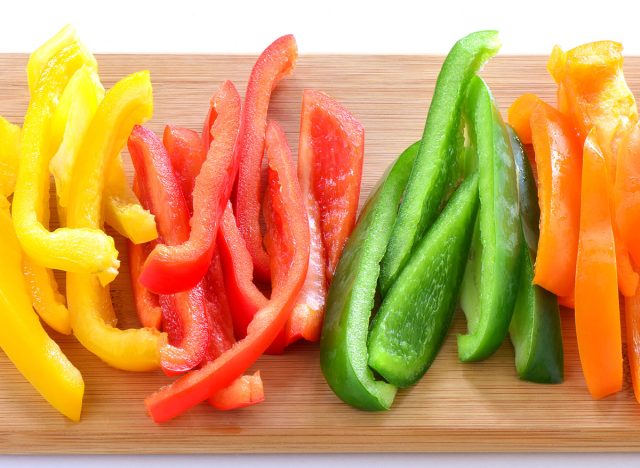

Bell peppers are a versatile veggie that are delicious either cooked or eaten raw with your favorite dip. And according to our dietitians, they’re helpful for managing inflammation to slow aging, too!
“Bell peppers are high in vitamin C and vitamin A, which are naturally occurring antioxidants. They are also high in fiber and water, making them a hydrating veggie. Their high levels of antioxidants also make them anti-inflammatory, which means they can help reduce inflammation in the body,” says Dana Ellis Hunnes, PhD, MPH, RD, a registered dietitian and author of Recipe for Survival.
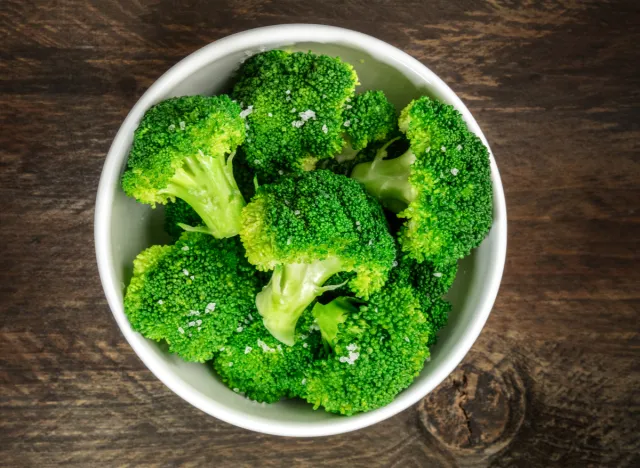

Broccoli is another extremely nutrient-dense veggie option, so you may want to add it to your next dinner to slow the rate of age-related diseases that are linked to chronic inflammation.
“Broccoli is high sulfurophanes, which are naturally occurring antioxidants that are extremely healthy and anti-inflammatory. Broccoli is also high in calcium, fiber, and contains a fair amount of water, which also contributes to its anti-inflammatory abilities. It also has a lot of plant-based protein in it compared to other vegetables,” says Hunnes.
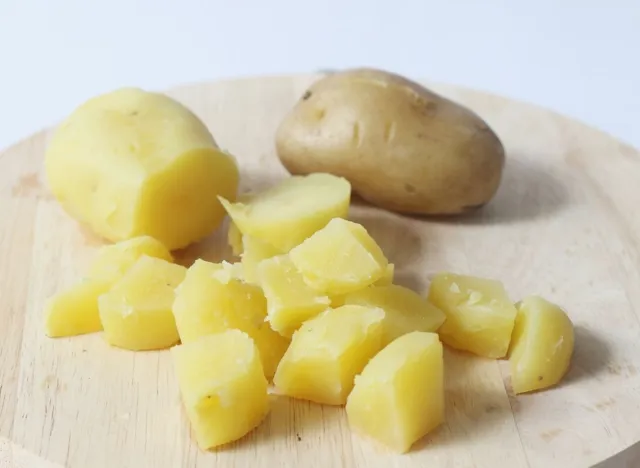

People have mixed opinions about potatoes because they are a carb-heavy vegetable, but this root vegetable is packed full of helpful nutrients that can slow aging.
READ RELATED: What is the right amount of sleep each night and how could missing it RUIN your health?
“Potatoes are a nutrient-rich food that are rich in fiber, potassium, vitamin C, and can fight against free radicals. White potatoes can lower inflammation, cholesterol, and blood pressure in the body,” says registered dietitian Veronica Rouse, MAN, RD, CDE.
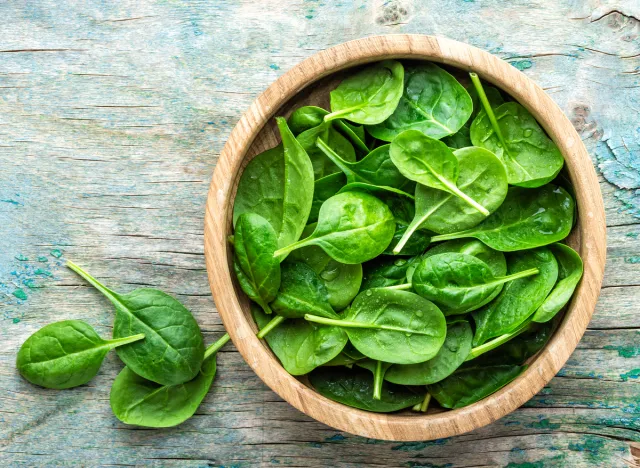

Leafy greens are an important vegetable to add to your diet whenever you can because they are full of health benefits.
“Leafy greens such as spinach, kale, arugula, romaine lettuce, and Swiss chard, are excellent sources of many vitamins, minerals, and antioxidants. They provide the body with Vitamins A, C, E, and K, iron, potassium, calcium, magnesium, and fiber. Including dark green leafy vegetables in your diet can help reduce inflammation in the body and support overall health,” says registered dietitian Mandy Tyler, MEd, RD, CSSD, LD, LAT.
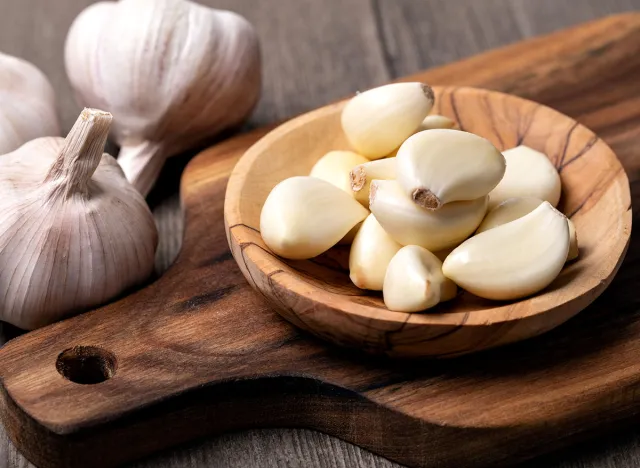

Garlic is not only delicious, but it has a ton of helpful benefits for many different aspects of your health.
“Garlic is one of the most potent anti-inflammatory foods you can eat. It’s loaded with antioxidants, minerals, and vitamins that help boost your immune system and protect against [age-related diseases like] cancer,” says registered dietitian Ronald Smith, RD. “Add it to your diet in small amounts (one clove daily) or use it as a seasoning on food,” he suggests.
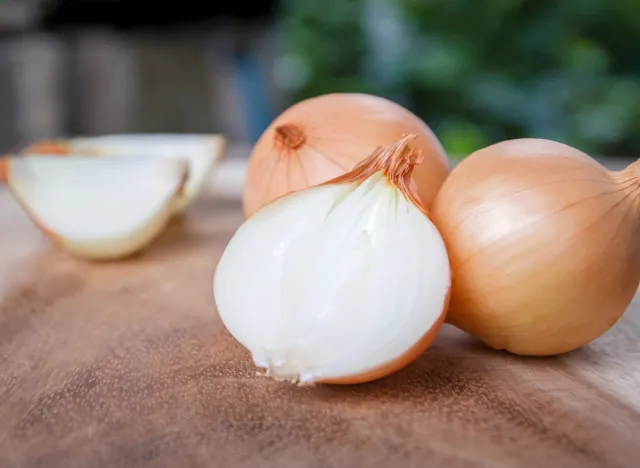

Onions can add a burst of flavor to your favorite dishes, as well as a burst of helpful nutrients, too!
“Onions are rich in quercetin, an antioxidant compound found in many fruits and vegetables that helps prevent chronic disease by reducing inflammation in the body. In addition to quercetin, onions are also loaded with other beneficial nutrients such as vitamin C, vitamin E, and magnesium. You can enjoy them raw or cooked, just make sure they’re peeled first!” says Smith.
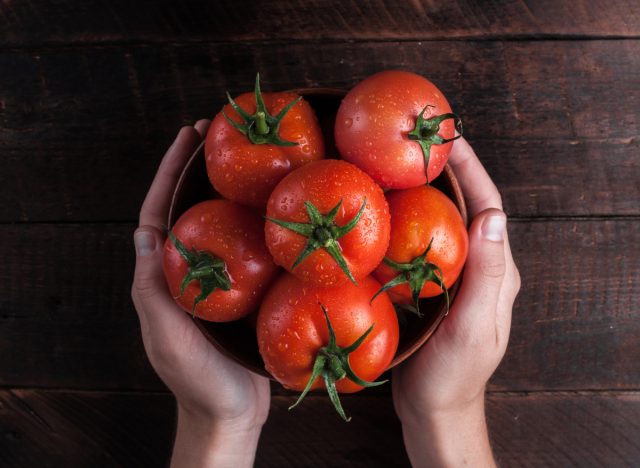

Tomatoes are rich in anti-inflammatory properties, so it may be a good idea to incorporate them into your diet where you can.
“Tomatoes are high in lycopene, which is a powerful antioxidant that may help reduce inflammation in your body. Lycopene is also believed to help protect against heart disease and certain cancers,” says Smith.
Source:











